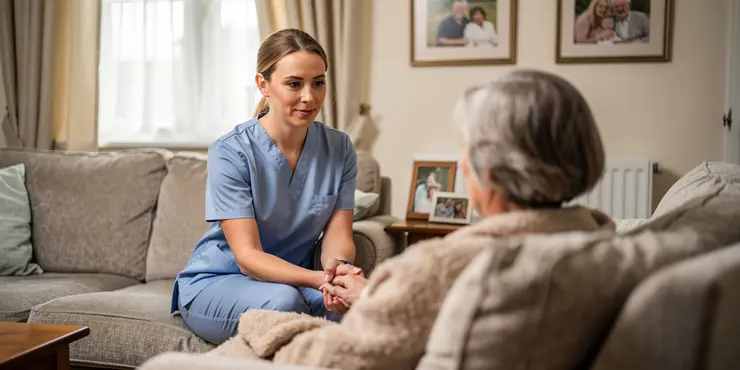
Find Help
More Items From Ergsy search
-
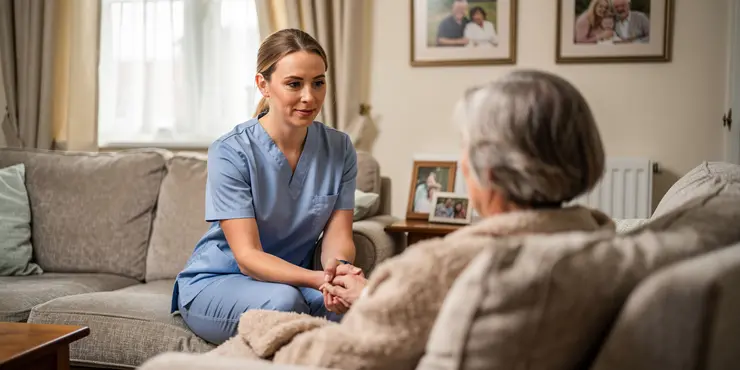
What is end of life care?
Relevance: 100%
-

Can I end a lease agreement early?
Relevance: 40%
-

What happens when the introductory APR period ends?
Relevance: 39%
-
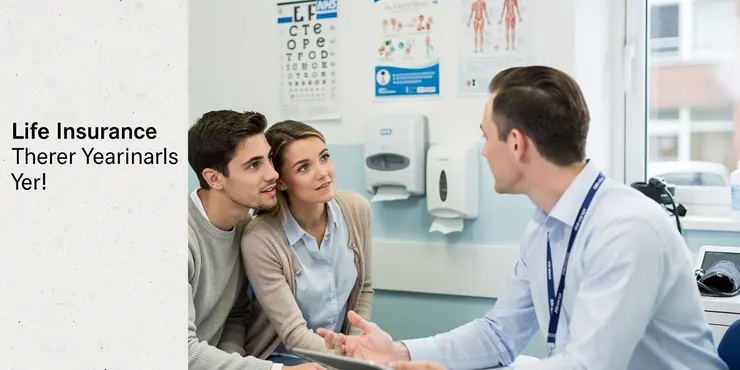
Should You Get Life Insurance UK | Life Insurance & Life Assurance
Relevance: 39%
-
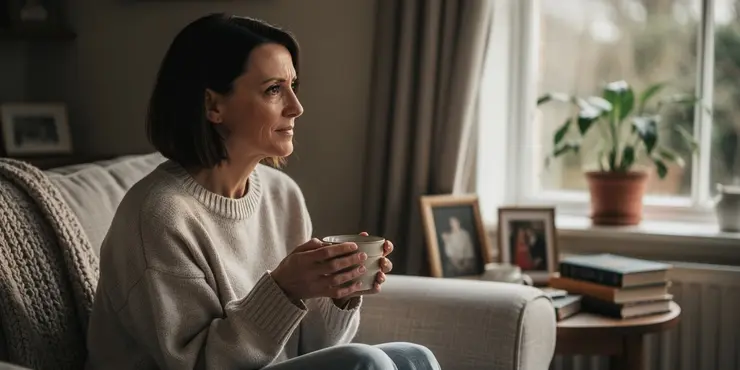
Can ending a toxic relationship improve my mental health?
Relevance: 37%
-

Can an indefinite sentence end with a conditional release?
Relevance: 36%
-
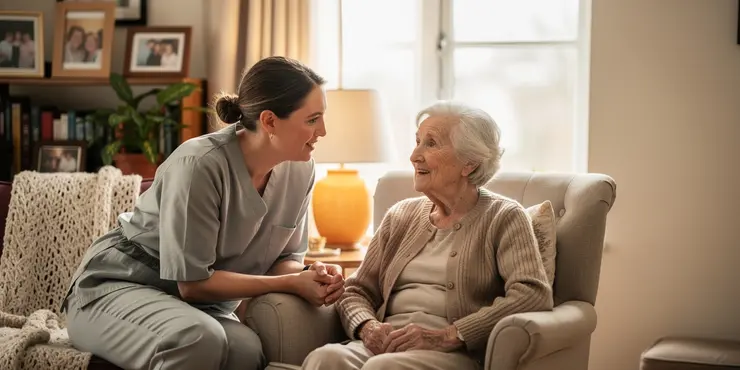
Dementia Care at Colten Care
Relevance: 35%
-

Leg amputation and life afterwards
Relevance: 33%
-

How does an indefinite prison sentence differ from a life sentence?
Relevance: 33%
-
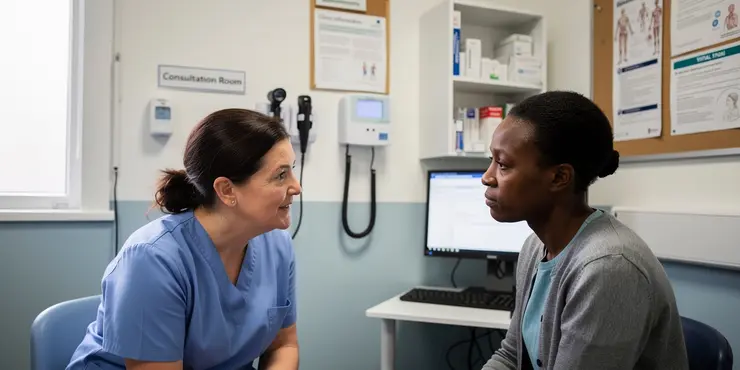
What is the life expectancy after a motor neurone disease diagnosis?
Relevance: 32%
-

What if I've moved since the tax year ended?
Relevance: 30%
-

Are life insurance payouts subject to Inheritance Tax?
Relevance: 29%
-
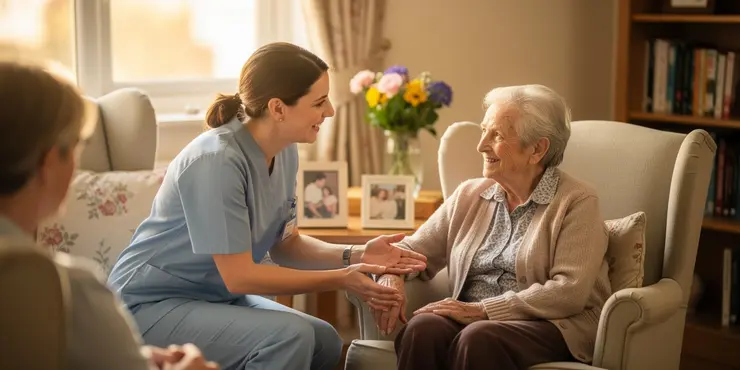
What are Care Homes?
Relevance: 29%
-
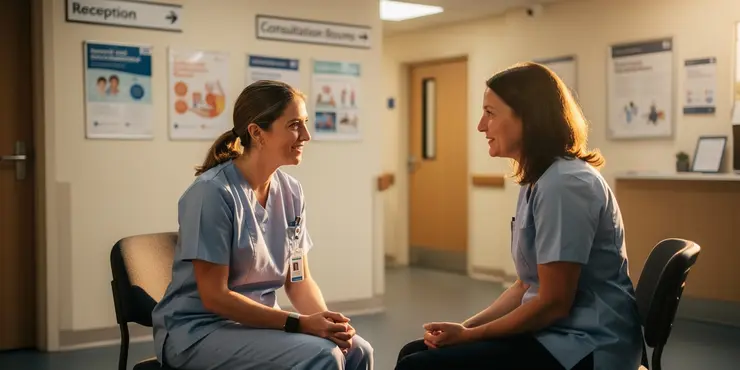
Does life insurance cover funeral costs?
Relevance: 29%
-
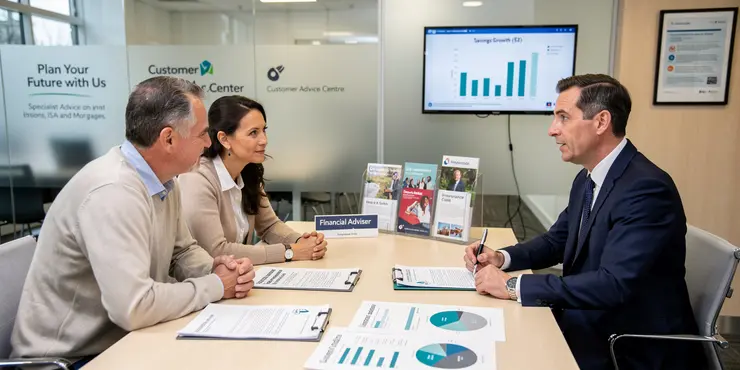
How does inheritance tax affect life insurance policies?
Relevance: 28%
-
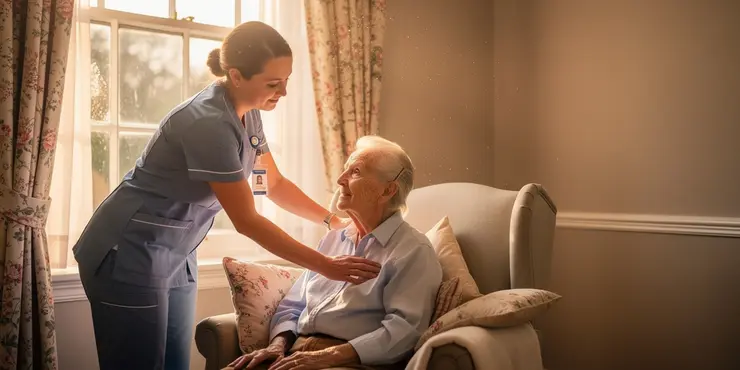
Are there different types of care homes?
Relevance: 28%
-
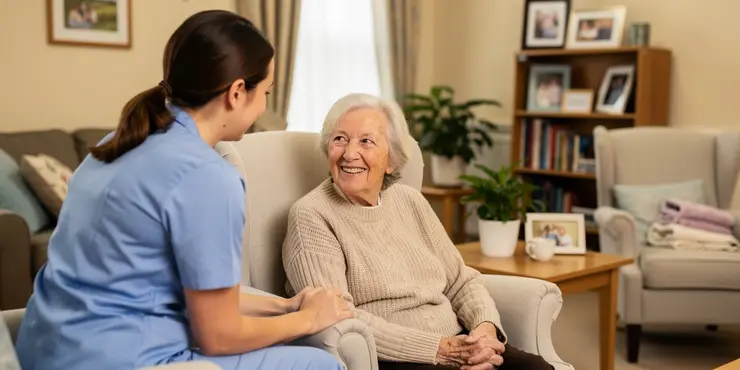
Do care homes provide medical care?
Relevance: 28%
-

Life Insurance Difference between Unit Linked and With Profit Policies
Relevance: 28%
-
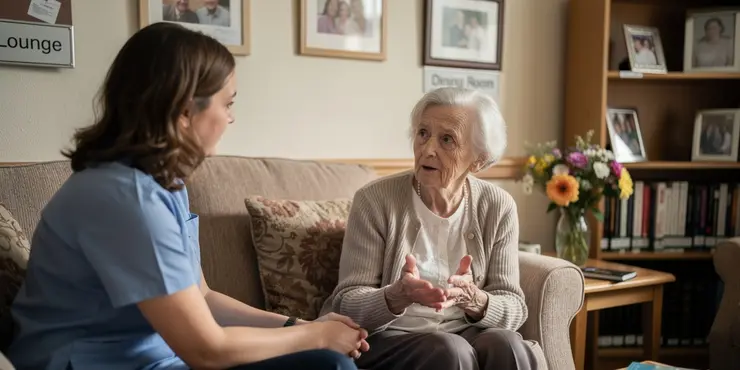
The role of care homes dedicated to caring for people living with dementia and memory loss
Relevance: 28%
-
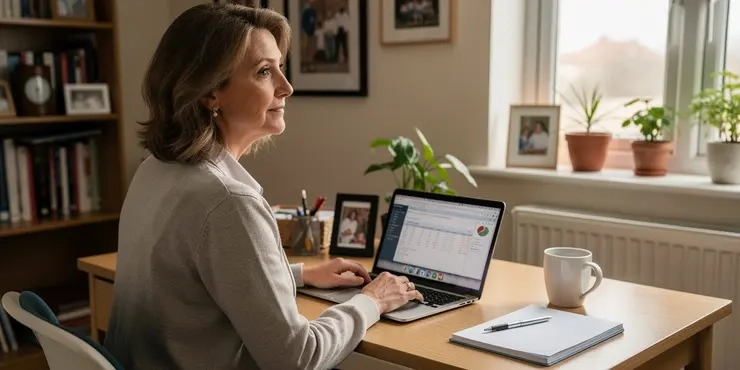
Divorce - How To Rebuild Your Life After Losing Everything
Relevance: 28%
-
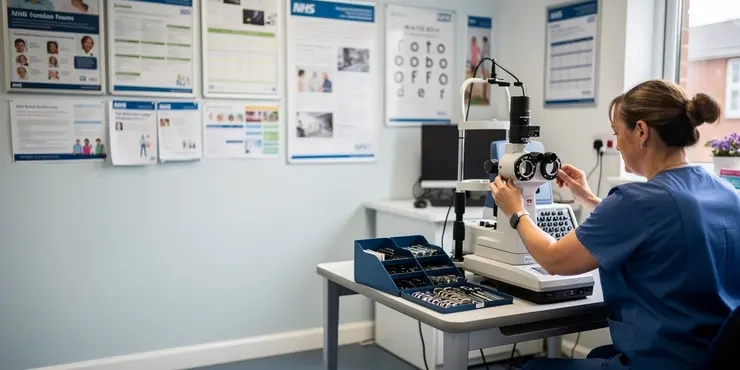
North Yorkshire Diabetic Eye Screening Programme - A day in the life
Relevance: 27%
-
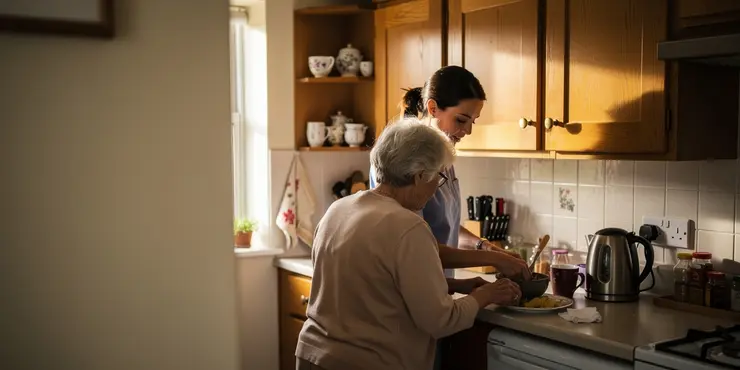
Can live-in care be customized?
Relevance: 27%
-

Stoma Care
Relevance: 27%
-
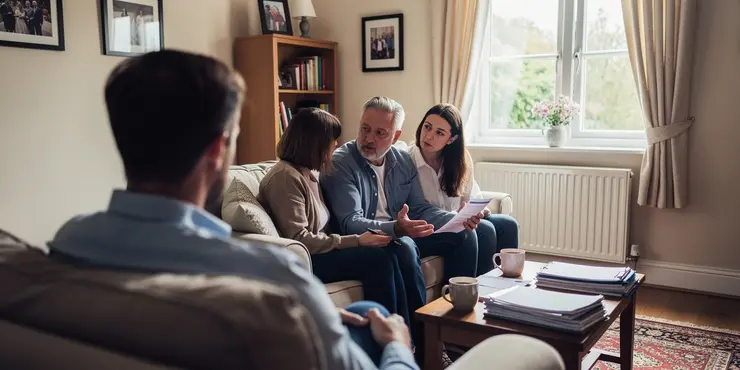
How does inheritance tax apply to life insurance policies?
Relevance: 27%
-
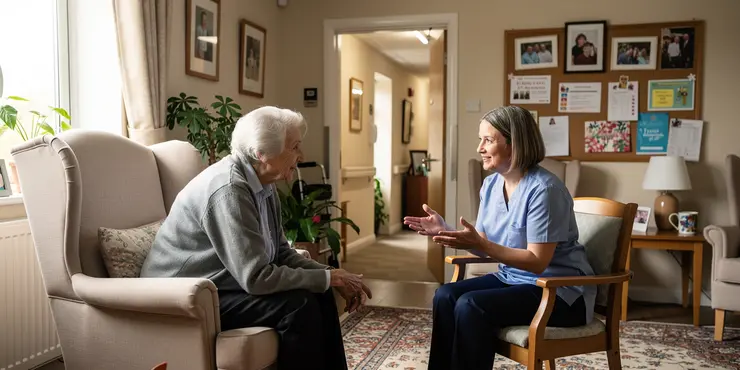
How is the quality of care regulated in care homes?
Relevance: 27%
-
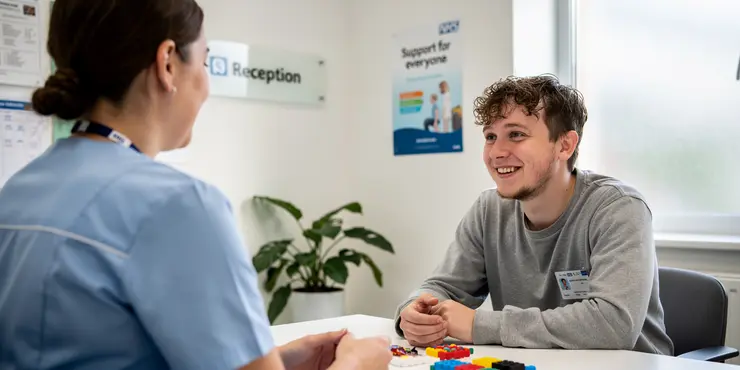
Transforming Care for people with Learning Disabilities and/ or Autism: Peter's Story
Relevance: 27%
-
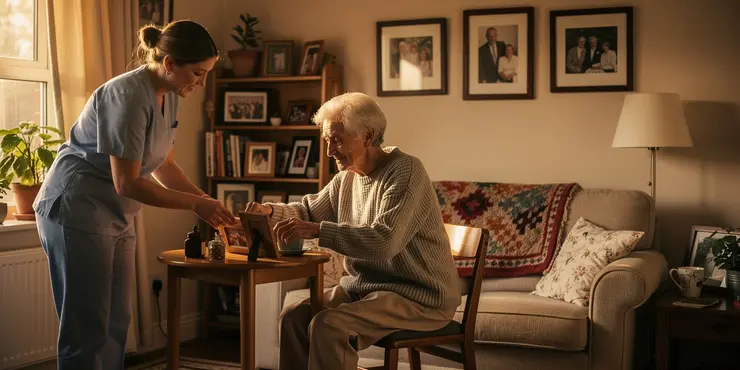
How does Alzheimer's affect daily life?
Relevance: 27%
-

Can nut allergies develop later in life?
Relevance: 26%
-
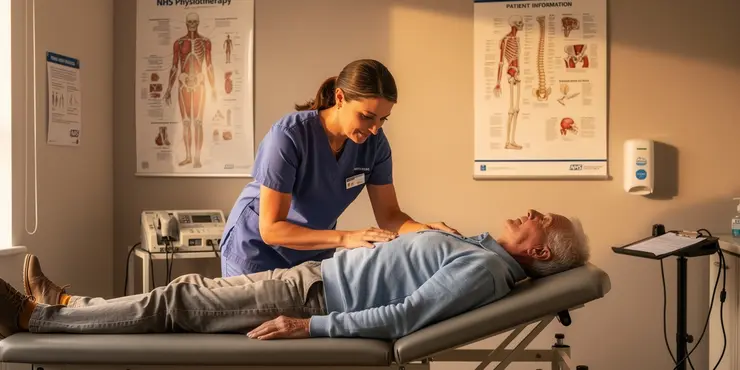
Can chiropractic care help with arthritis?
Relevance: 26%
-
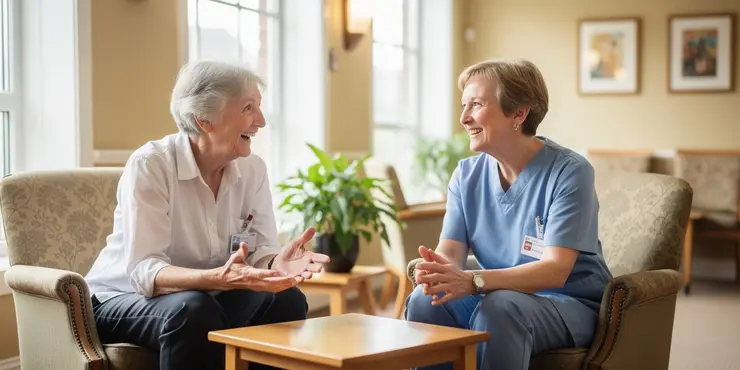
Birchgrove - Assisted-living accommodation and care
Relevance: 26%
-

Will I have to take weight loss jabs for life?
Relevance: 26%
-
What is the role of Live In Care?
Relevance: 26%
-
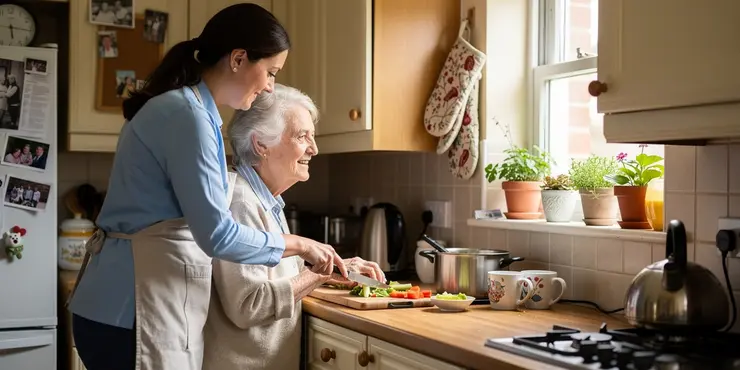
Is live-in care an alternative to nursing homes?
Relevance: 26%
-
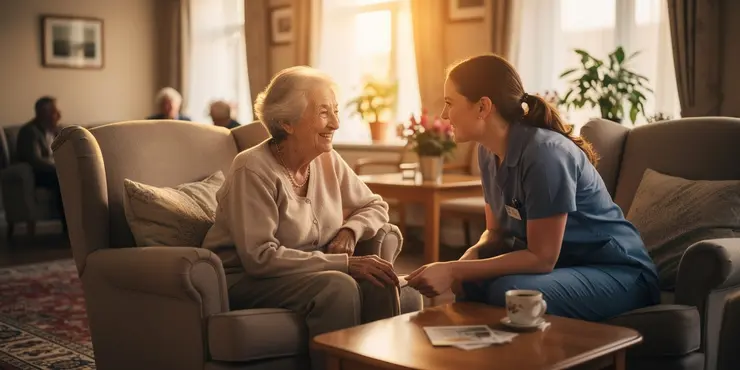
Who can live in a care home?
Relevance: 26%
-
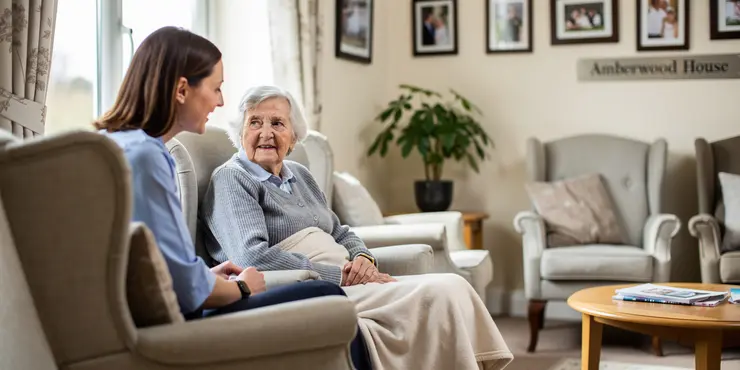
Amberwood House (Colten Care)
Relevance: 26%
-
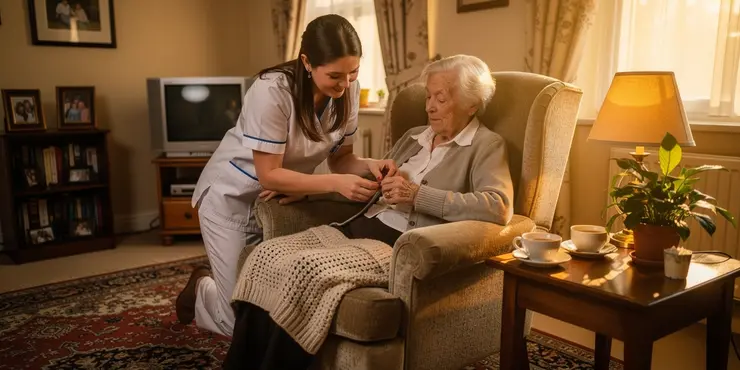
Who benefits from live-in care?
Relevance: 25%
-
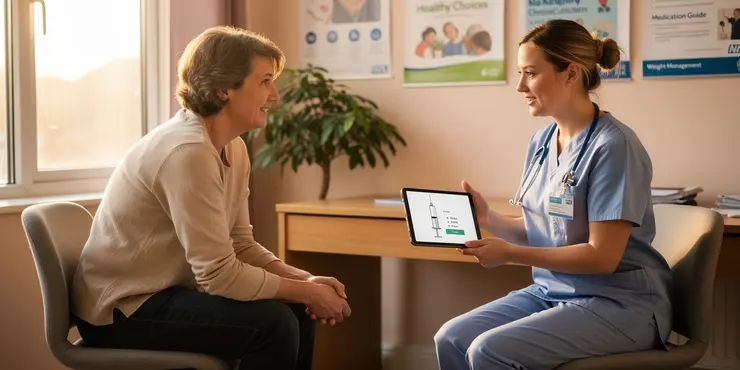
Will I have to take weight loss jabs for life?
Relevance: 25%
-
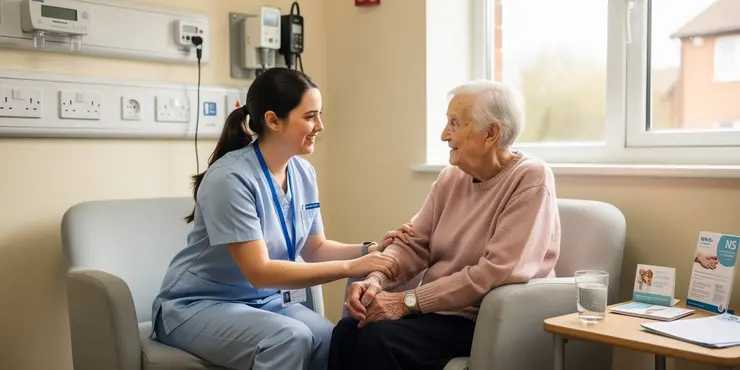
Dr Hilary Jones on Residential Care PART 2.
Relevance: 25%
-
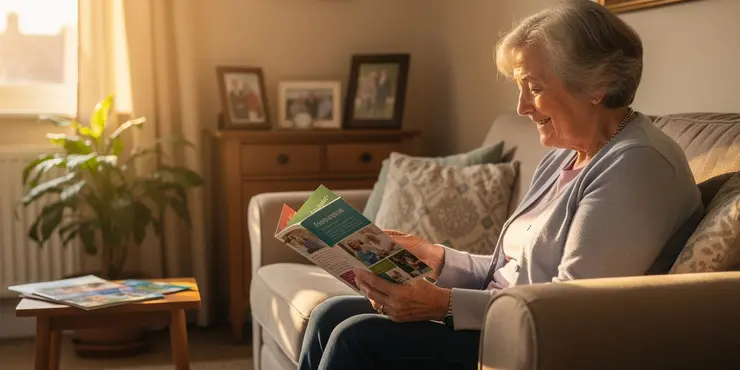
How can I choose the right care home?
Relevance: 25%
-
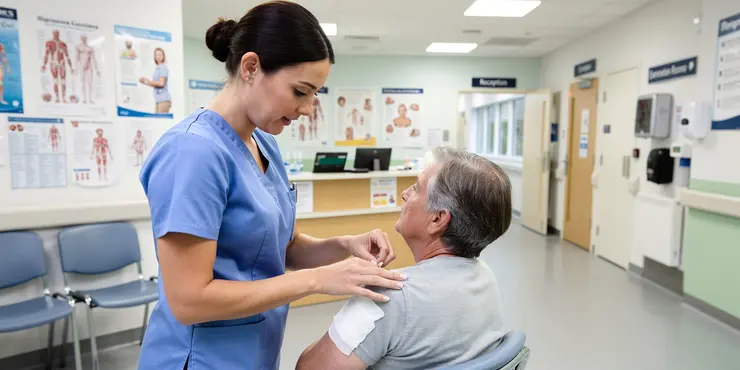
Can first aid skills help in daily life?
Relevance: 25%
What is End of Life Care?
End of life care is a term used to describe the support and medical care given during the time surrounding death. It is an important aspect of healthcare designed to help individuals live as well as possible until they die, while also supporting families and carers throughout this process. The focus is on managing symptoms, providing emotional support, and ensuring that the person’s preferences and needs are respected.
The Components of End of Life Care
End of life care typically involves several components, often provided in a coordinated way by a team of healthcare professionals, which may include doctors, nurses, social workers, and chaplains. This care can occur at home, in hospices, care homes, or hospitals, depending on the person's wishes and needs. Common components include pain management, assistance with personal care, emotional and spiritual support, and bereavement care for the family.
The Importance of Communication and Planning
Effective communication is crucial in end of life care. It is important for the healthcare team to understand the individual's wishes and values. Discussions about future care planning, often called advance care planning, help ensure that treatments reflect the person's preferences. This can involve decisions about resuscitation, the use of life-sustaining treatments, and preferred places for care.
Access to End of Life Care in the UK
In the United Kingdom, end of life care services are widely available through the National Health Service (NHS) and charitable organizations, such as hospices. The NHS aims to provide high-quality, compassionate end of life care, which reflects the national standards and guidelines. Local services may vary, and support can often be organized through a person's GP or hospital team.
Supporting Families and Carers
End of life care also places a strong emphasis on supporting families and carers. This includes providing information about what to expect, practical support in caring for the dying person, and bereavement support after the individual passes away. Recognizing the emotional burden on carers, many services offer counseling and support groups to help them cope with their loss and grief.
What is End of Life Care?
End of life care helps people who are near the end of their lives. It gives support and healthcare to them and their families. The goal is to help the person feel as good as possible until they pass away. This care also provides support to families and caregivers. It focuses on managing pain and emotions and making sure the person's wishes are respected.
The Components of End of Life Care
End of life care includes different types of help. Doctors, nurses, and other healthcare workers often work together to provide this care. It can take place at home, in hospices, care homes, or hospitals, based on what the person wants and needs. The main parts of this care include managing pain, helping with daily tasks, providing emotional and spiritual support, and helping families with their grief.
The Importance of Communication and Planning
Talking and planning are very important in end of life care. It’s key for healthcare workers to know what the person wants and cares about. Planning ahead, called advance care planning, makes sure that care reflects the person’s wishes. This can include choices about treatments like resuscitation and where they would like to be cared for.
Access to End of Life Care in the UK
In the UK, end of life care is available through the National Health Service (NHS) and charities like hospices. The NHS aims to give good and caring end of life care based on national standards. Local services can be different, and help can often be set up through a GP or hospital team.
Supporting Families and Carers
End of life care also helps families and carers. It gives them information on what to expect and practical support to care for the person. After the person dies, there is bereavement support for families. Since caring can be emotionally hard, there are counseling and support groups to help families cope with their loss.
Frequently Asked Questions
What is end of life care?
End of life care is support for people who are in the last months or years of their life, helping them to live as well as possible until they die.
Who provides end of life care?
End of life care can be provided by healthcare professionals such as doctors, nurses, and care staff in hospices, hospitals, care homes, or at home.
When does end of life care begin?
End of life care begins when a person is nearing the end of their life, which may be weeks, months, or sometimes years before death, depending on the individual's specific circumstances.
What services are included in end of life care?
End of life care includes pain and symptom management, emotional support, spiritual care, and assistance with daily living activities if needed.
How are the needs of family and friends addressed in end of life care?
End of life care often involves support for families and friends, including emotional support and help with bereavement.
How is pain managed in end of life care?
Pain management in end of life care is tailored to each individual, typically using medications, palliative care techniques, and other therapies to ensure comfort.
Can end of life care be provided at home?
Yes, end of life care can be provided at home, allowing patients to remain in a familiar environment surrounded by loved ones.
What is a hospice, and how does it relate to end of life care?
A hospice is a facility or service that provides specialized care for those nearing the end of life, focusing on comfort, quality of life, and support for both patients and families.
Are there costs associated with end of life care?
In the UK, many end of life care services are provided by the NHS and are free, but some services may have associated costs depending on the provider and the services required.
How do I support a loved one receiving end of life care?
Supporting a loved one includes offering emotional support, helping them express their wishes, and assisting with practical needs as much as possible.
What is an advance care plan?
An advance care plan is a document that outlines a person's preferences for their care at the end of life, which can guide healthcare providers and family members.
Is spiritual care part of end of life care?
Yes, spiritual care is an integral part of end of life care, addressing the spiritual needs and concerns of the patient and their family.
How can I talk to a healthcare professional about end of life care?
You can discuss end of life care options with your GP, hospital doctors, nurses, or a social worker to understand the options and make informed decisions.
What is palliative care in relation to end of life care?
Palliative care is a component of end of life care focusing on relieving symptoms, pain, and stress to improve quality of life for both patients and their families.
How do I make an end of life care plan?
You can make an end of life care plan by discussing your preferences with family and healthcare providers, documenting your wishes, and using advance directives if available.
What is end of life care?
End of life care helps people who are very sick. It is for people who may not get better. This care helps them feel better and comfortable.
If someone you know needs this care, talk to their doctor or nurse. They can help you understand what to do.
Sometimes, reading can be hard. You can ask someone to read to you or use a computer to help speak the words.
End of life care helps people who might have only a few months or years left to live. It makes sure they live as happily and comfortably as they can until they die.
Who helps when someone is very sick and may not get better?
When someone is very sick and might die soon, they need special care. This care can be given by doctors, nurses, and carers. It can happen in places like hospices, hospitals, care homes, or even at home.
When does end of life care start?
End of life care starts when a doctor thinks you might be in the last year of your life. It helps people feel better and more comfortable. Supportive tools like picture cards or storyboards might help you understand more.
End of life care starts when someone is getting close to the end of their life. This might be weeks, months, or even a few years before they die. It depends on each person's situation.
What help do people get at the end of their life?
People who are very sick and near the end of life get special care. This care helps them be comfortable and not in pain.
Here are some things that can help:
- Nurses and doctors help look after the person.
- Medicines to make sure they feel okay and are not in pain.
- Someone to talk to and listen if the person or family is worried or sad.
- Help with washing, dressing, and eating.
It is important to talk about wishes and what care is needed with family and helpers.
End of life care means helping people feel better when they are very sick. It includes making sure they are not in pain. It also means giving support to help with feelings and worries. Some people will want to talk about their beliefs. Helpers can also assist with everyday things if someone needs it.
How does end of life care help family and friends?
End of life care helps people who are close to someone who is very sick. This care supports family and friends in different ways.
- Talk with them and listen to how they feel.
- Share information about what is happening.
- Help them with any worries or questions they have.
- Offer places to rest or take breaks.
- Give contact numbers for more support.
It’s important for family and friends to know they are not alone. They can use these tips:
- Ask the care team for help anytime.
- Find local groups or online support to talk with others.
- Use relaxation or breathing exercises to stay calm.
When someone is very sick and might not get better, they get special help called end of life care. This helps their family and friends too. People get support for their feelings, and when someone dies, there is help for feeling sad.
How do we help people in pain at the end of their life?
Pain care at the end of life is made just for each person. Doctors often use medicine, special care, and other help to make sure the person is comfortable.
Can someone be cared for at home when they are very sick?
Yes, people can be looked after at home when they are very sick. This is called end of life care. Here's how it can happen:
- Family and friends can help. They can sit with the person, give them drinks, and help them feel comfortable.
- Doctors and nurses can come to the house. They help with medicine and any medical needs.
- There are special helpers called carers. They can come to help too.
- Sometimes, people use a hospital bed at home to make things easier.
If this sounds difficult, talking to a doctor or nurse can help. They know many ways to support you.
Yes, care at the end of life can happen at home. This lets people stay in a familiar place with their family and friends around them.
What is a hospice, and how does it help when someone is very sick and near the end of their life?
A hospice is a special place. It helps people who are very sick and near the end of their life.
Hospices give comfort and care. They make sure people feel as good as they can.
Hospice workers are kind and caring. They know how to help people and their families at this time.
Some people stay at the hospice. Others get help at home.
It’s about feeling safe, loved, and not in pain.
Tools like pictures and simple words can help explain what a hospice does.
A hospice is a special place or service. It helps people who are very sick and may not get better. The hospice makes sure they are comfortable and not in pain. It also helps their families feel supported and cared for.
Do you have to pay for care at the end of life?
In the UK, the NHS provides many services to help people at the end of their life for free. But sometimes, there might be costs for certain services, depending on who provides them and what you need.
How can I help someone I love who is very sick?
It can be hard when someone you love is very sick. Here are some ways you can help:
- Spend Time Together: Visit them and talk about happy memories or things they like.
- Listen: Let them say what they feel. Be a good listener.
- Comfort: Hold their hand or give a gentle hug if they want.
- Help with Tasks: Ask if they need help with small things, like getting water or reading a book.
- Be Patient: They might have good days and bad days. Be kind and patient.
If you feel sad or nervous, talking to someone you trust can help, too.
Helping someone you care about means listening to them, letting them talk about what they want, and helping them with things they need.
What is an advance care plan?
An advance care plan is a plan about your future health care. It tells people what care you want if you get very sick and can't speak for yourself.
How to make it easier:
- Talk to a trusted person about your wishes.
- Write down what care you would like.
- Use pictures or videos to show your wishes better.
Helpful tools:
- Ask someone to help you fill out forms.
- Use voice-to-text apps to record your wishes.
- Watch simple videos about advance care planning.
An advance care plan is a paper that says what a person wants for their care when they are very sick. It helps doctors and family know what to do.
Does end of life care include spiritual care?
When someone is very sick and near the end of life, they need special care. This care can help with pain and make them comfortable. It can also help their families.
Spiritual care means helping with feelings, beliefs, and finding peace. It can include talking to someone about their thoughts and feelings.
It is important for the care team to know if spiritual care is needed. You can talk to them about what you or your family believes. This will help them give the right support.
There are things that can help, like:
- Talking to a pastor or spiritual guide.
- Listening to calming music or sounds.
- Doing breathing exercises to relax.
Always remember, you can ask for help at any time.
Yes, spiritual care is a very important part of caring for people at the end of their life. It helps with the spiritual needs and worries of the patient and their family.
How can I talk to a doctor or nurse about end of life care?
Here is how you can talk to a doctor or nurse about end of life care:
- Think about what questions you want to ask. Write them down.
- Bring someone you trust with you to the meeting.
- Ask the doctor or nurse to use simple words.
- You can say you do not understand, and ask them to explain again.
- It is okay to feel sad or worried. You can talk about your feelings.
- Using pictures or drawings can help to understand better.
Remember, it is important to feel safe and supported. You can ask for help if you need it. You are not alone.
You can talk about end of life care choices with your doctor, hospital doctors, nurses, or a social worker. They will help you understand your choices and make good decisions.
What is palliative care for people at the end of life?
Palliative care helps people who are very sick feel better. It is special care for people who are at the end of their life. The care helps them feel comfortable and not in pain.
Tools that might help:
- Pictures to show what palliative care is.
- Someone to explain the words step by step.
Palliative care is a type of care given to people who are very sick and might not get better. It helps to make them feel better by taking away their pain and stress. It also helps their families feel better too.
How can I make a plan for end of life care?
Making a plan for end of life care can help you and your family. It tells others what you want when you are very sick and at the end of your life. Here is how you can make a plan:
- Talk to your doctor: They can help you understand your choices.
- Write down what you want: Make a list of the things that are important to you.
- Choose someone to speak for you: Pick a person you trust to tell others what you want.
- Share your plan: Tell your family and friends about your plan.
- Keep your plan safe: Put your plan in a safe place where others can find it.
You can ask a trusted friend or family member to help you with the plan. You can also use tools like a checklist to make sure you do not forget anything important.
You can make a plan for care at the end of life by talking with your family and doctors. Tell them what you want. Write down your wishes. Use special forms, called advance directives, if you have them. These forms help show your choices.
Useful Links
This website offers general information and is not a substitute for professional advice.
Always seek guidance from qualified professionals.
If you have any medical concerns or need urgent help, contact a healthcare professional or emergency services immediately.
Some of this content was generated with AI assistance. We’ve done our best to keep it accurate, helpful, and human-friendly.
- Ergsy carfully checks the information in the videos we provide here.
- Videos shown by Youtube after a video has completed, have NOT been reviewed by ERGSY.
- To view, click the arrow in centre of video.
- Most of the videos you find here will have subtitles and/or closed captions available.
- You may need to turn these on, and choose your preferred language.
- Go to the video you'd like to watch.
- If closed captions (CC) are available, settings will be visible on the bottom right of the video player.
- To turn on Captions, click settings .
- To turn off Captions, click settings again.
More Items From Ergsy search
-

What is end of life care?
Relevance: 100%
-

Can I end a lease agreement early?
Relevance: 40%
-

What happens when the introductory APR period ends?
Relevance: 39%
-

Should You Get Life Insurance UK | Life Insurance & Life Assurance
Relevance: 39%
-

Can ending a toxic relationship improve my mental health?
Relevance: 37%
-

Can an indefinite sentence end with a conditional release?
Relevance: 36%
-

Dementia Care at Colten Care
Relevance: 35%
-

Leg amputation and life afterwards
Relevance: 33%
-

How does an indefinite prison sentence differ from a life sentence?
Relevance: 33%
-

What is the life expectancy after a motor neurone disease diagnosis?
Relevance: 32%
-

What if I've moved since the tax year ended?
Relevance: 30%
-

Are life insurance payouts subject to Inheritance Tax?
Relevance: 29%
-

What are Care Homes?
Relevance: 29%
-

Does life insurance cover funeral costs?
Relevance: 29%
-

How does inheritance tax affect life insurance policies?
Relevance: 28%
-

Are there different types of care homes?
Relevance: 28%
-

Do care homes provide medical care?
Relevance: 28%
-

Life Insurance Difference between Unit Linked and With Profit Policies
Relevance: 28%
-

The role of care homes dedicated to caring for people living with dementia and memory loss
Relevance: 28%
-

Divorce - How To Rebuild Your Life After Losing Everything
Relevance: 28%
-

North Yorkshire Diabetic Eye Screening Programme - A day in the life
Relevance: 27%
-

Can live-in care be customized?
Relevance: 27%
-

Stoma Care
Relevance: 27%
-

How does inheritance tax apply to life insurance policies?
Relevance: 27%
-

How is the quality of care regulated in care homes?
Relevance: 27%
-

Transforming Care for people with Learning Disabilities and/ or Autism: Peter's Story
Relevance: 27%
-

How does Alzheimer's affect daily life?
Relevance: 27%
-

Can nut allergies develop later in life?
Relevance: 26%
-

Can chiropractic care help with arthritis?
Relevance: 26%
-

Birchgrove - Assisted-living accommodation and care
Relevance: 26%
-

Will I have to take weight loss jabs for life?
Relevance: 26%
-
What is the role of Live In Care?
Relevance: 26%
-

Is live-in care an alternative to nursing homes?
Relevance: 26%
-

Who can live in a care home?
Relevance: 26%
-

Amberwood House (Colten Care)
Relevance: 26%
-

Who benefits from live-in care?
Relevance: 25%
-

Will I have to take weight loss jabs for life?
Relevance: 25%
-

Dr Hilary Jones on Residential Care PART 2.
Relevance: 25%
-

How can I choose the right care home?
Relevance: 25%
-

Can first aid skills help in daily life?
Relevance: 25%


